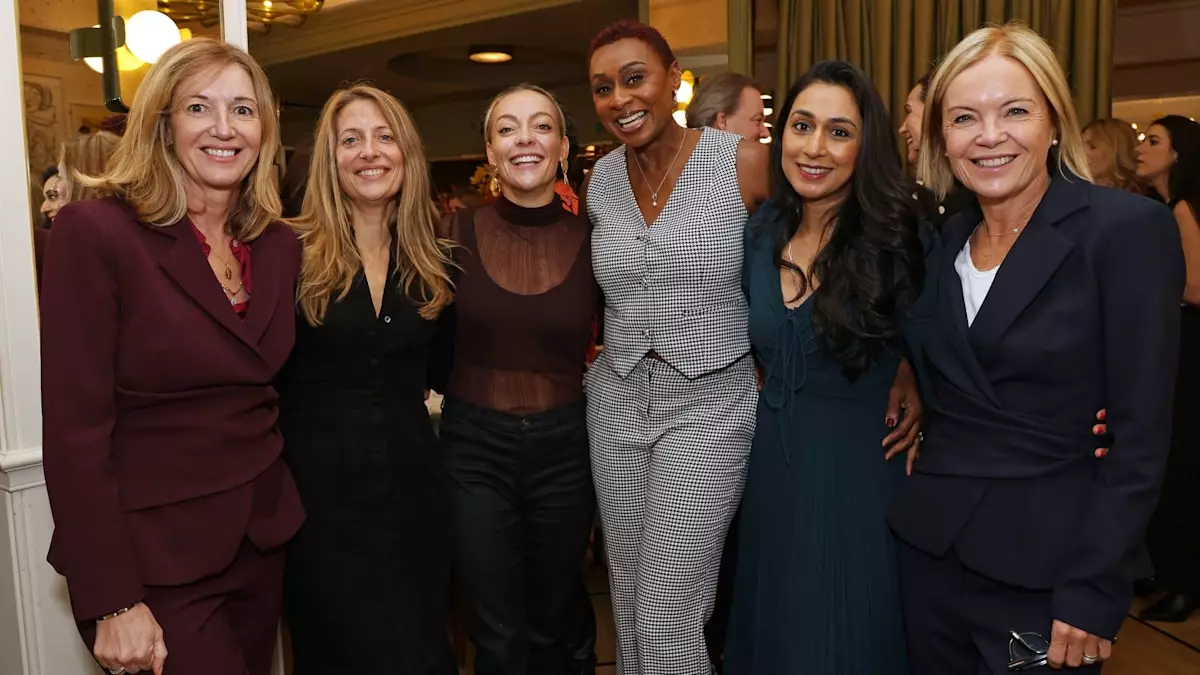In an age where conversations surrounding women’s health are gaining momentum, the recent Changemakers Breakfast hosted by HELLO! at Langan’s Brasserie in London marks a significant milestone. This event took place during World Menopause Month, gathering illustrious figures such as broadcaster Mariella Frostrup, actress Glynis Barber, and TV presenter Cherry Healy. The breakfast was more than a networking opportunity; it was a rallying point for various businesses and organizations committed to supporting women confronting the challenges of menopause and perimenopause within the workplace.
The gathering coincided with a growing recognition of menopause as a critical issue impacting women’s health in midlife. For decades, women have suffered in silence, often overlooked in discussions about workplace wellness. This initiative serves as a reminder that recognizing and addressing female health issues is not just a personal concern but a societal responsibility.
The panel, moderated by HELLO!’s Sophie Vokes-Dudgeon, underscored the partnership between HELLO! and Wellbeing of Women, particularly concerning the Menopause Workplace Pledge established in 2021. This collaboration seeks to promote awareness and create supportive frameworks within workplaces, ensuring that women undergoing menopausal changes are empowered and heard.
Mariella Frostrup, a strong advocate for this cause, beautifully articulated the need for reform. She emphasizes that workplaces have been largely tailored to men’s career paths, neglecting the unique challenges women face as they age. Her poignant comments about the economic benefits of supporting female employees resonate deeply; data consistently indicates that workplaces fostering female empowerment perform better financially. Therefore, empowering women transcends mere kindness; it is strategic and beneficial for businesses as well.
Crucially, Frostrup highlights the glaring oversight regarding menopause in the 40-plus health check offered by the government, acknowledging its potential implications for long-term health issues such as osteoporosis and heart disease. The absence of menopause from this critical evaluation points to a deeper systemic flaw in how women’s health is perceived and prioritized. Frostrup’s determination to rectify this gap is commendable; it advocates for a more holistic view of health that recognizes the interdependence of life stages and health outcomes.
The event’s relaxed atmosphere was set by wellness expert Poppy Delbridge, who led a calming ‘rapid tapping’ session designed to energize participants before delving into complex discussions. This blend of wellness practices ahead of substantive dialogue demonstrates a modern approach—recognizing that mental and emotional health are fundamental to effective communication and engagement.
Bespoke Solutions for Menopausal Women
Businesses represented at the breakfast showcased innovative strategies for accommodating menopausal women. For instance, Victoria McKenzie Gould of Marks & Spencer revealed her company’s proactive measures, which include a supportive network for menopausal staff and designing breathable uniforms to ease discomfort during hot flashes. Such initiatives underline a progressive shift towards embracing diversity in the workplace and catering to the specific needs of women.
One particularly inspiring voice from the panel was that of Ruby Hammer, a globally recognized makeup artist who reignited her career in her midlife. Hammer encouraged women to prioritize comfort and confidence in their appearance, suggesting that self-expression can significantly enhance one’s well-being. Her emphasis on style marrying comfort speaks to a larger narrative: that women should feel empowered to express themselves, regardless of societal expectations or stereotypes.
Fostering Representation and Advocacy
The panel also highlighted the importance of representation in discussions about women’s health. Michelle Griffith Robinson passionately shared her experiences as a Black woman navigating the challenges of menopause. She articulated the pressing need for diverse voices in this conversation, as different cultural backgrounds can shape women’s experiences of menopause. Robinson’s assertion that it is crucial for women to communicate their needs resonates powerfully; encouraging open conversation within both personal and professional realms cultivates an atmosphere of support and understanding.
For women grappling with the complexities of menopause, Robinson offered practical advice, urging them to speak up and seek clarity regarding their health. By advocating for transparency and dialogue surrounding struggles—be it hormonal fluctuations, emotional upheavals, or societal pressures—these women can find the necessary support to flourish.
A Path Forward
The Changemakers Breakfast served as an influential platform for dialogue, advocacy, and celebration concerning female health in midlife. In bringing together influential figures and businesses committed to this cause, the event emphasized the importance of embracing change and championing women’s health issues. As conversations around menopause and women’s health continue to evolve, they pave the way for a future where women can thrive in their personal and professional lives, free from stigma and supported by an informed society.
In closing, it’s paramount for society to recognize that women’s health, especially in midlife, is not merely an intimate concern but an issue of public health that necessitates a collective response.


Leave a Reply